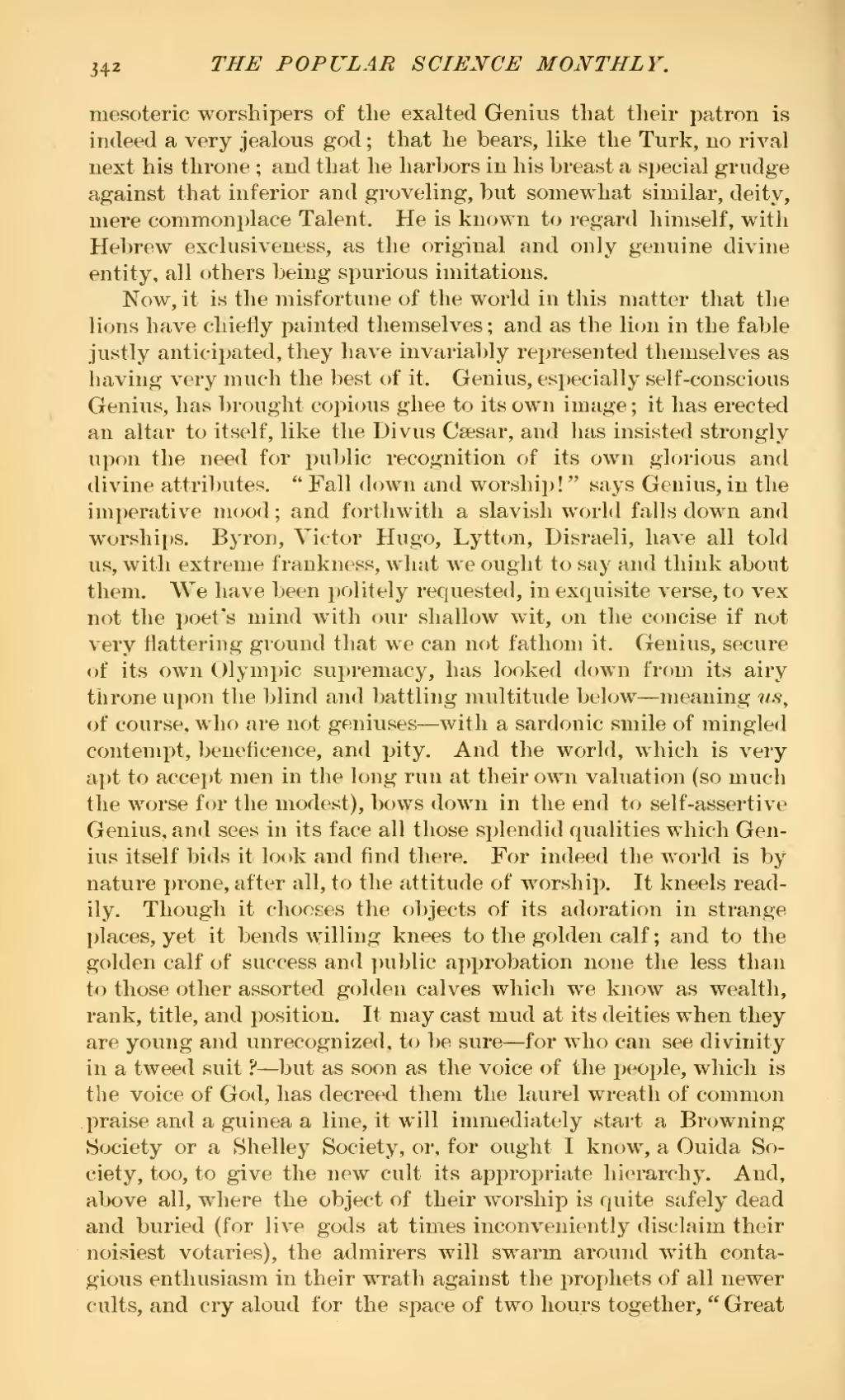mesoteric worshipers of the exalted Genius that their patron is indeed a very jealous god; that he bears, like the Turk, no rival next his throne; and that he harbors in his breast a special grudge against that inferior and groveling, but somewhat similar, deity, mere commonplace Talent. He is known to regard himself, with Hebrew exclusiveness, as the original and only genuine divine entity, all others being spurious imitations.
Now, it is the misfortune of the world in this matter that the lions have chiefly painted themselves; and as the lion in the fable justly anticipated, they have invariably represented themselves as having very much the best of it. Genius, especially self-conscious Genius, has brought copious ghee to its own image; it has erected an altar to itself, like the Divus Cæsar, and has insisted strongly upon the need for public recognition of its own glorious and divine attributes. "Fall down and worship!" says Genius, in the imperative mood; and forthwith a slavish world falls down and worships. Byron, Victor Hugo, Lytton, Disraeli, have all told us, with extreme frankness, what we ought to say and think about them. We have been politely requested, in exquisite verse, to vex not the poet's mind with our shallow wit, on the concise if not very flattering ground that we can not fathom it. Genius, secure of its own Olympic supremacy, has looked down from its airy throne upon the blind and battling multitude below—meaning us, of course, who are not geniuses—with a sardonic smile of mingled contempt, beneficence, and pity. And the world, which is very apt to accept men in the long run at their own valuation (so much the worse for the modest), bows down in the end to self-assertive Genius, and sees in its face all those splendid qualities which Genius itself bids it look and find there. For indeed the world is by nature prone, after all, to the attitude of worship. It kneels readily. Though it chooses the objects of its adoration in strange places, yet it bends willing knees to the golden calf; and to the golden calf of success and public approbation none the less than to those other assorted golden calves which we know as wealth, rank, title, and position. It may cast mud at its deities when they are young and unrecognized, to be sure—for who can see divinity in a tweed suit?—but as soon as the voice of the people, which is the voice of God, has decreed them the laurel wreath of common praise and a guinea a line, it will immediately start a Browning Society or a Shelley Society, or, for ought I know, a Ouida Society, too, to give the new cult its appropriate hierarchy. And, above all, where the object of their worship is quite safely dead and buried (for live gods at times inconveniently disclaim their noisiest votaries), the admirers will swarm around with contagious enthusiasm in their wrath against the prophets of all newer cults, and cry aloud for the space of two hours together, "Great
